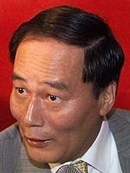 Name
Name
Wang Qishan 王岐山
Current status
Vice President
Born
1948
Relevance to Tibet
Xi Jinping’s Deputy and friend. Expected to play a role in US:China relations and continue anti-corruption work. No limit to how long he can serve.
 Name
Name
Wang Qishan 王岐山
Current status
Vice President
Born
1948
Relevance to Tibet
Xi Jinping’s Deputy and friend. Expected to play a role in US:China relations and continue anti-corruption work. No limit to how long he can serve.
Pronunciation: Wong Chee-shahn soundbite
Born: 1948, Shandong Province. Considered a “princeling” (son-in-law of former Vice Premier Yao Yilin). A sent-down youth during the Cultural Revolution.
Education: Graduate in history, Northwest University.
Career: Previously one of four Vice-Premiers of the State Council (until March 2013). Politburo Standing Committee and Chair of the Central Commission for Discipline Inspection 2012 – 2017.
Prospects: Retired from the Politburo Standing Committee in 2017 but appointed Vice President in March 2018, a post which has no age limit.
Relevance to Tibet: One of China’s most influential leaders. A friend of Xi Jinping’s since their youth. Could remain in post for many years.
Wang Qishan has held many influential positions but rose to greatest prominence as Head of the Central Commission for Discipline Inspection, with its high profile investigations into corruption by senior officials, including former Politburo Standing Committee member Zhou Yongkang, Hu Jintao aide Ling Jihua and 6th generation leader Sun Zhengcai. Wang stepped down from the Politburo Standing Committee in October 2017 along with 4 other members who had reached retirement age, but on 17 March 2018 was appointed by the National People’s Congress as Xi Jinping’s Vice-President. The BBC reported that ‘China’s constitution allows the vice-president to “assist” in his superior’s work and to carry out presidential duties on his behalf – meaning Wang Qishan, possibly in his role for life, could be far more than the figurehead his predecessors were.
Media commentators expect Wang to be involved in foreign relations – especially US/China relations – working with Yang Jiechi, Wang Yi, and economist Liu He. It is also presumed that he would continue to play a part in Xi’s anti-corruption campaign, with teh Central Commission for Discipline Inspection (now headed by Zhao Leji) and the newly created National Supervisory Commission (headed by Wang’s former deputy Yang Xiaodu).
His previous career includes many years at top level of major banks (and the Party committees of those banks) and various top level positions in Guangdong and Hainan Provinces. Mayor of Beijing.
Executive chairman of the Beijing Organizing Committee (2008 Olympics).
Was a member of the Politburo 2007 – 2012 (and member of 17th CPC Central Committee), a Vice Premier 2008 to 2013, responsible for economic, energy and financial affairs. Member of the Politburo Standing Committee 2012 – 2017 when age forced his retirement.
Known for bold handling of crises, e.g., SARS epidemic, liquidation of a scandal-ridden bank in Guangdong as a warning to financial community. In 2009, chaired the Chinese side of the economic track of the U.S.-China Strategic and Economic Dialogue.